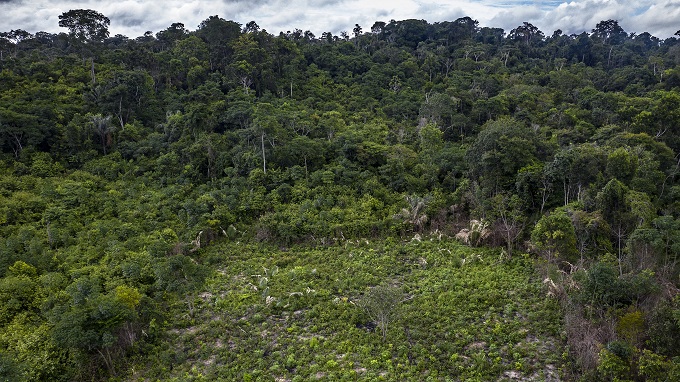Study shows forest regrowth is much slower than previously thought
Study shows forest regrowth is much slower than previously thought
A study led by Brazilian and British researchers published in the journal Ecology shows regrowth of Amazonian forests following deforestation can happen much slower than previously thought. If the trend goes on, the experts estimate it will take about 150 years for the forests to fully recover.
The paper was published on December 16 and is the result of a long-term study that has monitored forests regrowing after clear-felling – commonly called secondary forests – since 1998, in the town limits of Bragança, located in Northeastern Pará state. One of the main findings was that even after 60 years of regrowth, the studied secondary forests held only 40% of the carbon in forests that had not been disturbed by humans. In addition, the study also shows that secondary forests take less carbon from the atmosphere during droughts.
For biologist and first author of the study Fernando Elias, from the Federal University of Pará, "the region we studied in the Amazon has seen an increase in temperature of 0.1 oC per decade, and tree growth was lower during periods of drought.With predictions of more drought in the future, we must be cautious about the ability of secondary forests to mitigate climate change. Their ability to absorb atmospheric carbon may have been vastly overestimated”, the biologist warns.
Another finding from the study was that biodiversity levels in the secondary forests were only 56% of those seen in local undisturbed forests, with no increase in species diversity during the 20 years of monitoring.
Addressing forest regrowth
Biologist Joice Ferreira, a researcher at Embrapa Eastern Amazon, another author, asserts that secondary forests are considered an important tool to fight climate change. “In addition to reducing climate change, they also provide an important habitat for threatened species”, she underscores.
Many nations have made large reforestation pledges in recent years, and Brazil committed to restoring 12 million ha of forests under the Paris climate agreement. Generally speaking, the scientist states, these results suggest that these large forest restoration pledges need careful consideration about where and how to reforest.
“Our study in Pará's Northeast shows that in heavily deforested areas that have undergone several agricultural cycles, forest recovery needs additional support and investment to overcome the lack of seed sources and seed-dispersing animals. This is different from other areas that have a lot of forests in our research network in Pará”, Joice Ferreira explains.
For the forest engineer Maria do Socorro Ferreira, a retired researcher from Embrapa Eastern Amazon and also a coauthor of the study, long-term studies are important to monitor forest regeneration in the course of time. “When the monitoring started in 1998, the main goal was to offer opportunities for conservation, management and farmers' income through forest regrowth. However, such goals still require effective action to be achieved”, she states.
Jos Barlow, a researcher at Lancaster University, United Kingdom, points out the need for more long-term studies to understand the resilience of Amazon forests. “More long-term studies like ours are needed to better understand secondary forest resilience and to target restoration to the areas that will do most to combat climate change and preserve biodiversity”, he concludes.
Translation: Mariana Medeiros, based on Lancaster University press release.
Organizational Communications Team
Embrapa Eastern Amazon
Press inquiries
amazonia-oriental.imprensa@embrapa.br
Phone number: +55 91 3204-1099
Further information on the topic
Citizen Attention Service (SAC)
www.embrapa.br/contact-us/sac/

